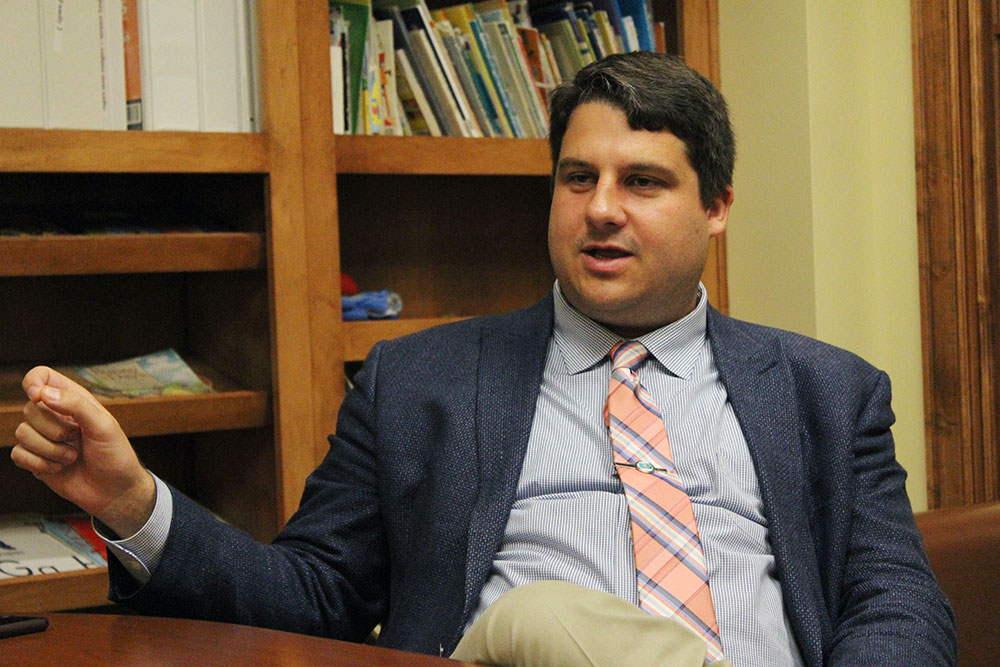
Step Up To Quality Stories
Prioritizing Quality Early Childhood Education
When Adam Feser promotes policies affecting early childhood in Nebraska, he can reference countless research studies, stacks of data analysis and endless quotes from experts.
But maybe the most meaningful example of the power of quality early childhood education is his own family.
Adam works as a policy associate for First Five Nebraska, an organization focused on changing public policy and public opinion related to the importance of quality early childhood care. He and his wife Amanda are also the parents to three boys, ages 5, almost 3, and 4 months.
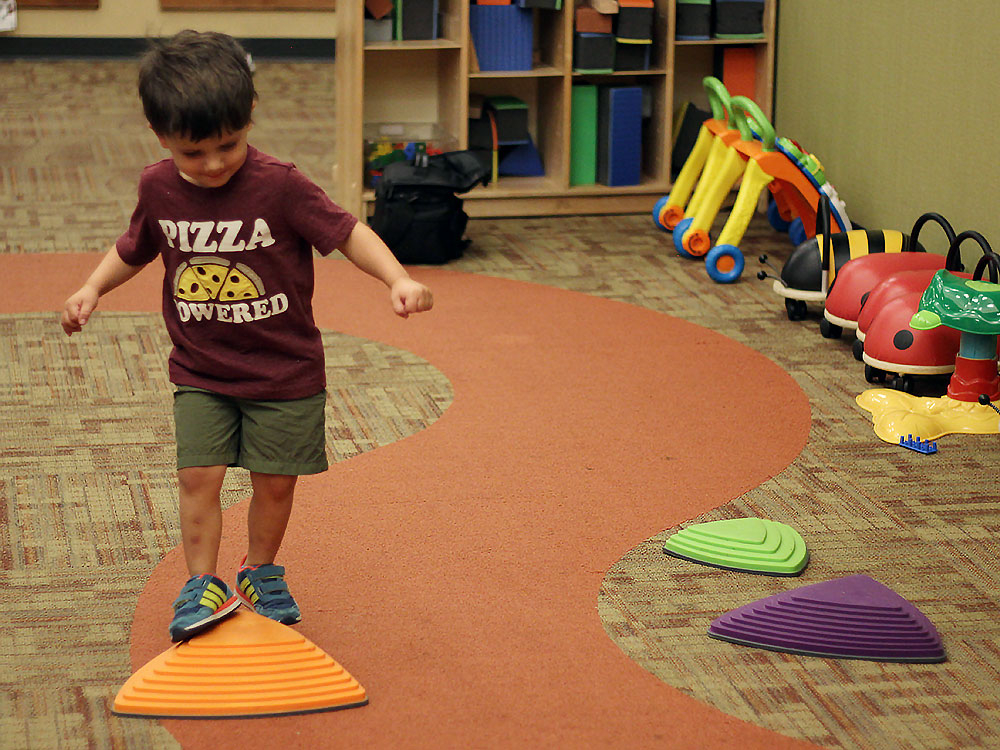
“I’m always reading up on early childhood education issues and trends, and it’s always like reading about my own family. It’s pretty cool to have my career and family life relate to each other that way,” he said.
Textbook Example
He especially saw the importance of quality child care play out in his oldest son, who is in kindergarten this year. Teddy attended UNL’s Children’s Center ever since he was 18 months old. Within a span of two weeks, Teddy graduated to kindergarten and his youngest brother Louis started at the center, joining middle brother Franklin.
“The transition for Teddy to kindergarten has been incredibly smooth,” Adam said. “He is excited to go to school and he is eager to learn.”
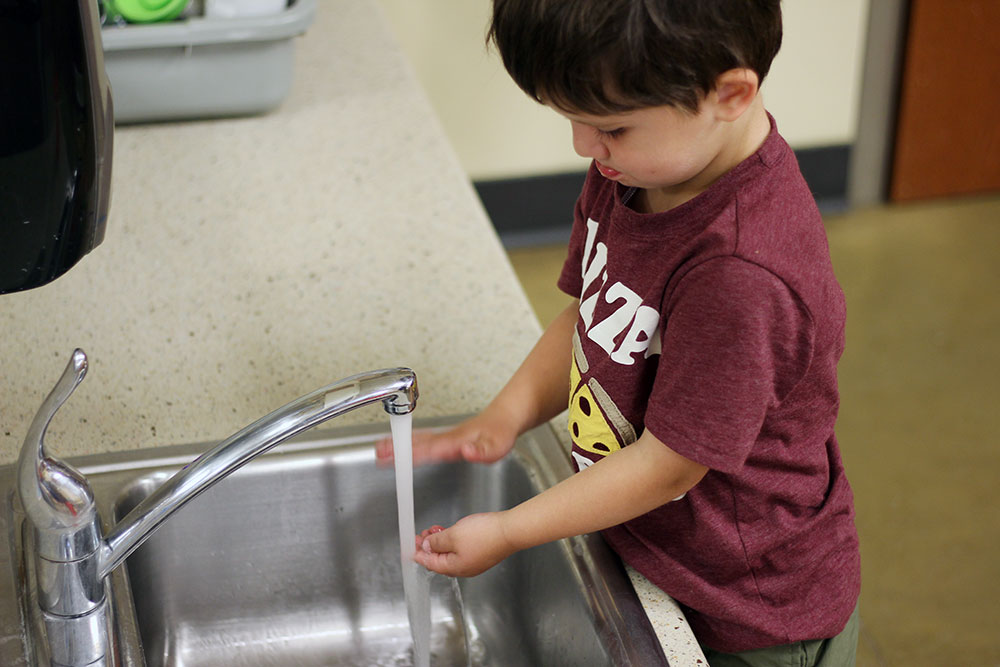
Leading up to the first day of school, Adam tried to teach him the importance of paying attention in class by doing the “ears listening, eyes watching, lips closed, hands still, feet quiet” exercise.
“He already knew it. He finished my sentence,” Adam said. “He was extremely prepared for kindergarten – we see it in him every day.”
The Best Foundation
When Adam and Amanda were choosing child care centers back when Teddy was a small toddler, they didn’t know about Step Up to Quality.
“It would have helped us tremendously, but luckily we found a great program anyway. Regardless, it’s validating that they’re in the program and at a Step 5,” Adam said.
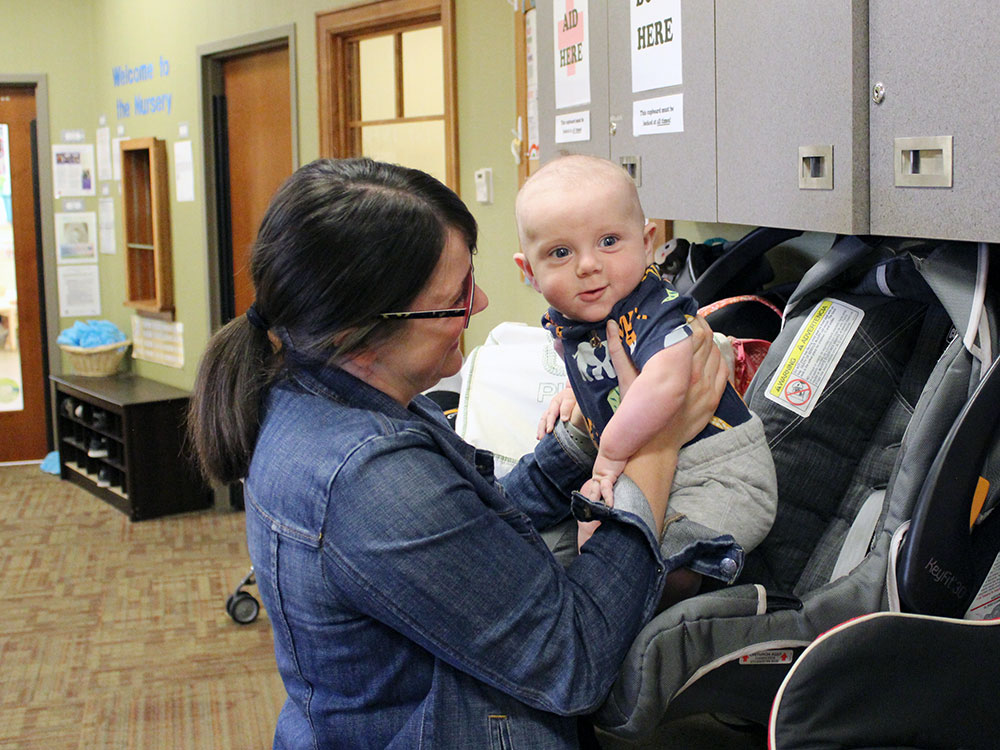
Step Up to Quality is a collaborative program from the Nebraska Department of Education and Department of Health and Human Services for early childhood education centers and in-home child care providers to go above and beyond the basic licensing requirements and illustrate their commitment to quality education for the children in their care. Providers go through a 5-step process – but it’s not a ranking. All participating programs are committed to quality, regardless of the step they have achieved.
The Future of our State is at Stake
Nebraskans are known for being hard-working people, and the statistics back this up. In 2016, nearly 78 percent of children in our state had all available parents in the workforce. The national average is 61.9 percent.
This means a lot of kids in our state are enrolled in child care, both in centers and in homes. Quality early childhood education is paramount for the future of Nebraska.
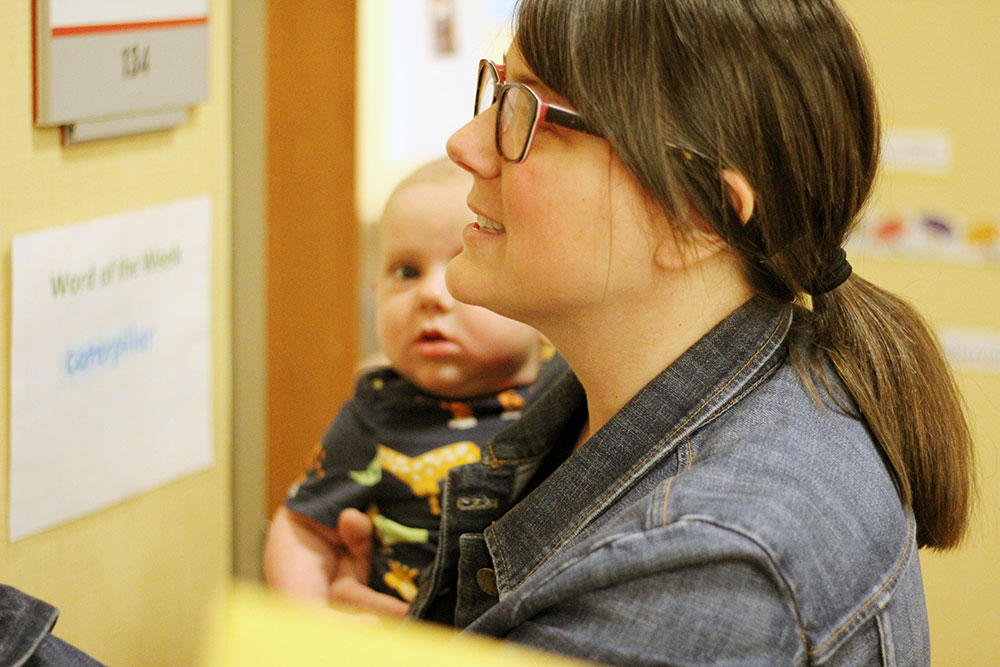
“Science shows that much of the brain circuitry is formed by age 3,” Adam said. “Early childhood education is important because these kids are learning how to learn, which serves them for the rest of their lives.”
